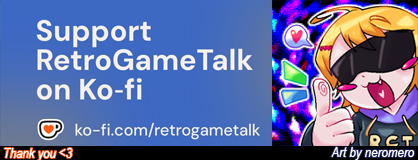- Joined
- Dec 9, 2024
- Messages
- 32
- Reaction score
- 59
- Points
- 127
The Darius series holds a special place in the pantheon of arcade shoot-'em-ups. With its distinctive aquatic-themed enemies, branching paths, and legendary triple-screen arcade cabinets, it's a franchise that helped define the horizontal shmup genre. That’s what makes Darius Cozmic Collection Arcade Edition such a frustrating release: it promises a celebration of classic arcade history, but delivers little more than a set of ROMs wrapped in a minimalist package.

On paper, this collection should be a retro fan’s dream. It includes a suite of arcade titles—Darius (1987), Darius II, Darius Gaiden, and their regional or alternate versions. The gameplay remains faithful to the original releases, and that fidelity is perhaps both its greatest strength and its fatal flaw.

Make no mistake—Darius is hard. Designed in the heyday of quarter-munching machines, the games here are unapologetically punishing. Enemy patterns are brutal, and power-ups feel like fleeting lifelines in an ocean of relentless fire. For shmup veterans, this difficulty may be a nostalgic return to form; for newcomers, it’s an unforgiving initiation into the genre’s most merciless traditions.

But difficulty alone isn't the issue—it's the lack of context or modern support that sinks this collection. The menus are spartan, offering little beyond the ability to select versions of the games and tweak a few emulation settings. There are no behind-the-scenes features, no concept art, no interviews, no development history. It's a museum exhibit stripped of its placards and lighting—a missed opportunity to truly honor a series that deserves more than just archival preservation.

Visually, the collection is faithful but limited. Attempting to replicate Darius' iconic triple-screen experience on modern displays results in extreme letterboxing or awkwardly stretched visuals. There’s no elegant solution offered—just options that feel like compromises. Darius Cozmic Collection Arcade Edition is a love letter written in shorthand. The raw gameplay still has teeth, and fans of the series will no doubt appreciate the chance to revisit some of its most iconic entries. But as a modern collection, it lacks the care, content, and curation that players have come to expect from retro anthologies. What could have been a definitive celebration instead feels like a shallow dip into deep waters.
On paper, this collection should be a retro fan’s dream. It includes a suite of arcade titles—Darius (1987), Darius II, Darius Gaiden, and their regional or alternate versions. The gameplay remains faithful to the original releases, and that fidelity is perhaps both its greatest strength and its fatal flaw.
Make no mistake—Darius is hard. Designed in the heyday of quarter-munching machines, the games here are unapologetically punishing. Enemy patterns are brutal, and power-ups feel like fleeting lifelines in an ocean of relentless fire. For shmup veterans, this difficulty may be a nostalgic return to form; for newcomers, it’s an unforgiving initiation into the genre’s most merciless traditions.
But difficulty alone isn't the issue—it's the lack of context or modern support that sinks this collection. The menus are spartan, offering little beyond the ability to select versions of the games and tweak a few emulation settings. There are no behind-the-scenes features, no concept art, no interviews, no development history. It's a museum exhibit stripped of its placards and lighting—a missed opportunity to truly honor a series that deserves more than just archival preservation.
Visually, the collection is faithful but limited. Attempting to replicate Darius' iconic triple-screen experience on modern displays results in extreme letterboxing or awkwardly stretched visuals. There’s no elegant solution offered—just options that feel like compromises. Darius Cozmic Collection Arcade Edition is a love letter written in shorthand. The raw gameplay still has teeth, and fans of the series will no doubt appreciate the chance to revisit some of its most iconic entries. But as a modern collection, it lacks the care, content, and curation that players have come to expect from retro anthologies. What could have been a definitive celebration instead feels like a shallow dip into deep waters.

